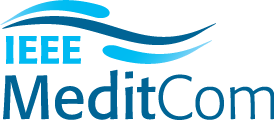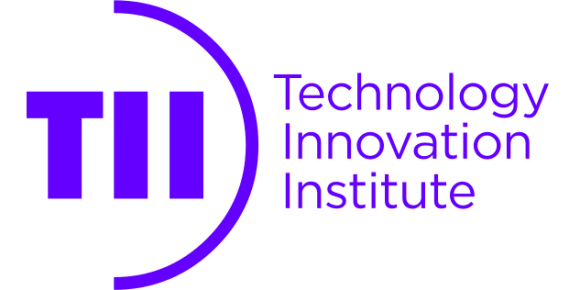Workshops-at-a-Glance
- WS1 - Fifth Workshop on Reconfigurable and Holographic Surfaces for Communications and Networking
- WS2 - First Int. Workshop on Cybersecurity in Healthcare and Medicine
- WS3 - Adaptive and Multifunctional PHY Layer towards 6G
Important Dates
Paper Submission Deadline: 30 June 2023 (Extended)
Paper Acceptance Notification: 31 July 2023
Camera Ready: 10 August 2023
WS1 - Fifth Workshop on Reconfigurable and Holographic Surfaces for Communications and Networking
Submit Paper: https://edas.info/newPaper.php?c=30709&track=118706
Organizers
- Aryan Kaushik, University of Sussex, UK
- Marco Di Renzo, Paris-Saclay University, France
- Wonjae Shin, Ajou University, South Korea
- Nemanja Stefan Perovic, Paris-Saclay University, France
- Muhammad Z. Shakir, University of the West of Scotland, UK
- Haris Pervaiz, University of Essex, UK
Background and Motivation
Reconfigurable intelligent surfaces (RIS) leverage smart radio surfaces with a high number of small antennas or metamaterial elements based on a programmable structure that can be used to control the propagation of electromagnetic waves. Reconfigurable holographic surfaces (RHS) with multiple input multiple output (MIMO) setup are composed of numerous metamaterial radiation elements integrated in a holographic pattern to generate beams with desirable directions. Furthermore, with RHS the transceiver can leverage hologram principle with this entire surface for efficient wireless communications and networking applications. These intelligent and holographic surfaces will play a pivotal role in advanced sixth generation communication systems and networks. Machine learning and artificial intelligence (AI) tools, and optimization-based algorithmic solutions can be explored with RIS/RHS-aided systems and networks. RIS/RHS can be configured at sub-6 GHz, millimeter wave (mmWave) to terahertz (THz) spectrum and beyond. Integrated sensing, communications and localization based systems can be explored with RIS/RHS configurations. RIS/RHS can be also intertwined with emerging technologies such internet-of-things (IoT), internet-of-everything (IoE), internet-of-intelligent-things (IoIT), internet-of-spacethings (IoST) and vehicle to everything (V2X), conformal metasurfaces, unmanned aerial vehicles (UAVs)-assisted systems and networks. RIS/RHS-aided novel multiple access schemes can be explored as well within this scope. 5th Workshop on Reconfigurable Intelligent and Holographic Surfaces for Communications and Networking will take place at the IEEE MeditCom 2023, Dubrovnik, Croatia. It will provide a forum for sharing multidisciplinary contributions to the emerging RIS/RHS technology. We aim to bring together leading researchers from academia and industry, to share their recent findings and views.
Topics of Interest
We seek to assemble cross-cutting and high-quality original research papers on topics including, but not limited to:
- AI, machine/deep learning, federated learning with RIS/RHS
- V2X, V2V, UAVs and vehicular networking with RIS/RHS
- Satellite communications and networking with RIS/RHS
- Integrated sensing, communications and localization with RIS/RHS
- IoT, IoE, IoIT (intelligent), IoST (space) with RIS/RHS
- Multiple access schemes such as RSMA, NOMA with RIS/RHS
- Precoding, quantization, RF design with RIS/RHS
- PHY algorithms and protocol designs with RIS/RHS
- Electromagnetic compatibility modeling & signaling with RIS/RHS
- Channel estimation, imperfect CSI modelling with RIS/RHS
- Network security, privacy & interference exploitation with RIS/RHS
- Wireless backhaul, integrated access & backhaul with RIS/RHS
- Cell-free wireless, full-duplex, mmWave and THz with RIS/RHS
- Resource allocation & transmission protocols with RIS/RHS
- Mobile edge computing, distributed computing with RIS/RHS
- Semantic communication, URLLC, mMTC and eMBB with RIS/RHS
- Experimentation & testbed findings with RIS/RHS
Submissions
Papers should follow IEEE MeditCom 2023 paper submission guidelines. All papers will be submitted through EDAS, and all accepted papers with presentation will be published in the IEEE MeditCom 2023 Conference Proceedings (and to be eligible for publication in the IEEE Xplore).
WS2 - First Int. Workshop on Cybersecurity in Healthcare and Medicine
Submit Paper: https://edas.info/newPaper.php?c=30709&track=118708
Organizers
- Hrvoje Belani, Ministry of Health, Zagreb, Croatia
- Krešimir Šolić, J. J. Strossmayer University of Osijek, Croatia
- Kristina Fišter, University of Zagreb, Croatia
- Ana Madevska-Bogdanova, Ss. Cyril and Methodius University, Skopje, North Macedonia
- Toni Perković, University of Split, Croatia
- Tatjana Lončar-Turukalo, University of Novi Sad, Serbia
Program Committee
- Daniel Amyot, University of Ottawa, Canada
- František Babič, Technical University of Košice, Slovakia
- Søren Bank Greenfield, Danish Health Data Agency, Denmark
- Ioanna Chouvarda, Aristotle University of Thessaloniki, Greece
- Kristina Drusany-Starič, Ljubljana University Medical Centre, Slovenia
- Kosjenka Dumančić, University of Zagreb, Croatia
- Önder Gürcan, University of Paris-Saclay, France
- Mira Hercigonja-Szekeres, University Hrvatsko Zagorje Krapina, Croatia
- Marcin Kautsch, University Hospital in Kraków, Poland
- Vahan Markarov, ProCredit Holding AG & Co. KGaA, Germany
- Jordi Piera Jiménez, Catalan Health Service, Catalonia, Spain
- Ariel Stulman, Jerusalem College of Technology, Israel
- Vladimir Trajkovik, Ss. Cyril and Methodius University, Skopje, North Macedonia
- Ivona Zakarija, University of Dubrovnik, Croatia
Background and Motivation
The First International Workshop on Cybersecurity in Healthcare and Medicine (CyHeMe) fosters discussion related to information security and cybersecurity resulting from the need to build secure, reliable and robust systems and services that not only support healthcare and medicine, but also foster well-being, encourage patients and the population in general to live according to healthy lifestyle recommendations, and address the specific safety needs of an aging population. This multidisciplinary workshop will bring together practitioners and researchers from relevant disciplines. Among other objectives, CyHeMe aims to: i) develop approaches that support multiple perspectives of information security and cybersecurity in healthcare and medicine; ii) develop or refine methods for achieving and raising cybersecurity of systems and services that promote well-being or health; and iii) identify open research and industry challenges, as well as validation objectives for proposed solutions. This is an inaugural CyHeMe workshop, and will take place on-site full-day.
Topics of Interest
- Developing approaches (incl. methods, taxonomies / ontologies, models, standards / requirements) that support multiple perspectives of information security and cybersecurity in healthcare and medicine
- Developing approaches to be taken towards protecting e-health systems and services (policy, good practices, standardisation, etc.)
- Developing or refining methods for achieving and raising cybersecurity of systems and services that promote well-being or health
- Considering systematically evidence-based factors of cybersecurity risk reductions in systems and services
- Developing measures or metrics to evaluate the return on investment of models, methods, tools, or techniques that improve information security and cybersecurity with systems related to health or medicine
- Methods for achieving cyber vs. human balance when cybersecurity techniques may work against each other in healthcare systems and services
- Maintaining information security hygiene in healthcare organizations and medical facilities
- Improving communication and aligning security-critical processes among information security and cybersecurity experts, patients, caregivers and clinicians
- Identifying open research and industry challenges, as well as validation objectives for proposed solutions
- Mitigating the influence of COVID-19 pandemic on the lack of cybersecurity and resilience of systems
Submissions
Authors may submit papers in two general categories:
- Research/Experience papers (max. 6 pages)
- Extended Abstract/Vision papers (max. 2 pages)
Submissions will be received through EDAS. Each submission will be reviewed by three reviewers, the members of the CyHeMe 2023 Program Committee and possibly additional reviewers recommended by the Program Committee members. Preference will be given to submissions that emphasize informed, topic-relevant and technically sound descriptions of important challenges and problems as opposed to just proposed solutions. Full papers will be be published in the IEEE MeditCom 2023 Conference Proceedings (and to be eligible for publication in the IEEE Xplore). Please follow paper submission guidelines.
WS3 - Adaptive and Multifunctional PHY Layer towards 6G
Submit Paper: https://edas.info/newPaper.php?c=30709&track=118709
Organizers
- Carles Antón-Haro, CTTC, Spain
- Diana P. Moya Osorio, CWC, University of Oulu, Finland
- Mate Boban, Huawei Technologies Duesseldorf, Germany
Technical Program Committee
- Vittorio Degli Esposti, U. Bologna
- Ana García-Armada, UC3M
- Tommy Svensson, Chalmers
- Allister Burr, U. York
- Diego Dupleich, TUIL
- Wei Fan, AAU.
- Carsten Smeenk, IIS Fraunhoffer
- Yang Miao, U. Twente
- Laurent Clavier, IMT Nord Europe.
- Chiara Buratti, U. Bologna
- Roberto Verdone, U. Bologna
- Per Hjalmar Lehne, Telenor
- Pekka Kyösti, Keysight and University of Oulu
- Marco di Renzo, Paris-Saclay University
- Joonas Kokkoniemi. University of Oulu
Background and Motivation
The stringent requirements for demanding applications in beyond-5G scenarios call for novel frequency bands (from sub-GHz to THz), antenna design, and transmission techniques. Extending the knowledge of the propagation under the expected future network deployments is essential to unveil the fundamental and achievable performance limits. The complexity of these communication scenarios with smart environments empowered by the use of reflective intelligent surfaces (RIS) and the integration of novel functionalities such as sensing in integrated sensing and communications (ISAC) systems demonstrates the crucial role of AI/ML for the design and optimization of an adaptive physical layer. This research area is at the core the INTERACT COST Action which is aimed at proposing novel designs and strategies for making future radio communication networks intelligent, meaning aware, adaptive and parsimonious; and contributing to the creation of intelligent environments. This workshop will address disruptive approaches related on how artificial intelligence can impact the physical and lower layer of 6G communication systems, with emphasis on integrated communications and sensing paradigms.
Topics of Interest
Potential topics include, but not limited to the following:
- AI/ML based physical layer technologies:
- Waveform design
- Channel estimation
- Power control
- Initial access
- Modulation and coding
- AI/ML techniques for channel estimation, channel modeling, and channel prediction:
- Generating channel impulse responses using AI/ML
- Learning based parameterization of channel parameters
- Parameter-less learned channel models
- AI/ML based physical-layer methods for security and privacy
- methods for secrecy and privacy
- Physical layer authentication
- Secret key generation
- AI/ML assisted sub-THz and THz systems:
- Device discovery
- Beam management
- RF impairment modeling and management
- AI/ML based solutions for the design of ISAC systems
- Precoding, waveform, modulation, transceiver design
- Environment Sensing and Monitoring
- RF system and antenna design
- Positioning solutions and SLAM
Submissions
Papers should follow IEEE MeditCom 2023 paper submission guidelines. All papers will be submitted through EDAS, and all accepted papers with presentation will be published in the IEEE MeditCom 2023 Conference Proceedings (and to be eligible for publication in the IEEE Xplore).




